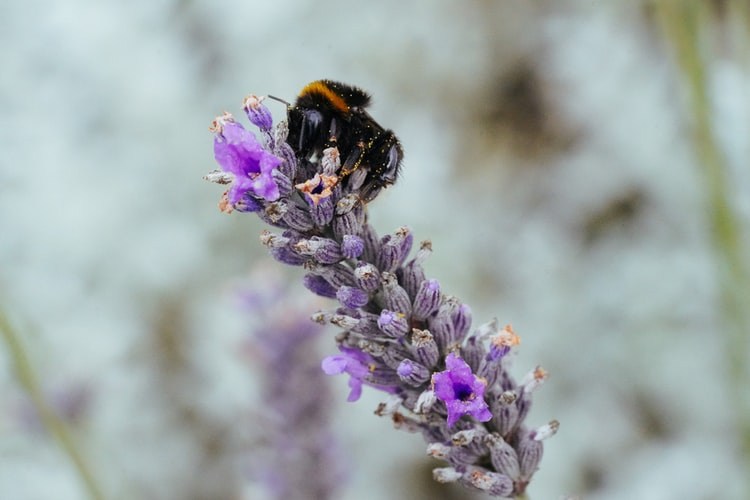The European Commission did not take a consistent approach to the protection of wild pollinators in the EU, according to a new audit report by the European Court of Auditors (ECA). The auditors found gaps in the key EU policies addressing the main threats to wild pollinators.
Pollinators such as bees, wasps, hoverflies, butterflies, moths and beetles greatly contribute to increasing the quantity and quality of food. They transfer pollen from male to female structures of flowers, enabling fertilisation and reproduction of plants.
In recent decades, however, wild pollinators have declined in abundance and in diversity, largely due to intensive agriculture and the use of pesticides but also because of climate change.
Already in 2010, leading scientists identified reducing pesticide use and diversifying landscapes as tools to conserve and restore insect populations. They stressed the urgency of the situation, stating that there is enough information on some of the main causes of insect decline to formulate solutions immediately.
In 2020, the World Economic Forum placed loss of biodiversity among the top five long-term global risks. It saw a decline of pollinators leading to a shift in crop cultivation from nutrient-rich food crops (fruits, vegetables and nuts – all of which require pollinators) to energy-dense, nutrient-poor staple crops (for example rice, corn, wheat, soybean and potatoes).
“Pollinators play an essential role in plant reproduction and ecosystem functions, and their decline should be seen as a major threat to our environment, agriculture and quality food supply”, said Samo Jereb, the ECA member responsible for the report, at a virtual press conference last week (8 July).
“The EU initiatives taken so far to protect wild pollinators have unfortunately been too weak to bear fruit.” He was referring to the current biodiversity strategy (2011 – 2020), the Pollinators Initiative from 2018 and the common agricultural policy (CAP).
Lack of accountability
The auditors, to summarize the findings in the audit, found that EU’s legal framework did not really help to protect wild pollinators. The Commission itself, with different Directorates-General (DG) involved in implementing the framework, did not act proactively and admitted in its reply to the findings that it could only act within this framework, which according to the auditors was full of gaps.
ECA focused its audit this time on collecting extensive information via questionnaires and interviews from the DG for Environment, the DG for Agriculture and Rural Development, the DG for Health and Food Safety, the DG for Research and Innovation and the European Food Safety Authority (EFSA). In addition, relevant European organisations representing producers and NGOs were surveyed.
Measures specifically addressing the impact of environmental pollution and climate change, and the control of invasive alien species were outside the scope of the audit.
As in most ECA audits, the report does not attribute accountability to any specific Directorate-General. The Commission’s failure to halt the decline in wild pollinators is due to internal lack of policy coordination and pressure by member states to continue using dangerous pesticides by emergency legislation.
The auditors, however, highlights the insufficient resources working on protecting pollinators. The Commission designated only on official in DG Environment to work full time on the Pollinators Initiative. It estimated that staff in DG Health and Food Security involved in actions related to the protection of pollinators from the use of pesticides contributed also one full time equivalent.
“We found that the Commission did not set up clear roles and responsibilities for the Commission directorates involved. The Commission has not organised progress meetings with stakeholders nor defined monitoring and reporting arrangements to review the progress of the actions. There are no targets or criteria defined to assess whether the actions achieved their objectives.”
Use of pesticides despite ban
The findings on the use of pesticides, or plant protection products (PPPs), are especially alarming. The legislation currently in force includes safeguards to protect honeybees, but risk assessments are still based on guidance by EFSA from 2013 which is outdated and poorly aligned with legal requirements and the latest scientific knowledge, according to ECA.
The EU framework has allowed member states to continue using pesticides thought to be responsible for massive honeybee losses. For example, between 2013 and 2019, 206 emergency authorisations were granted for the use of three neonicotinoids (imidacloprid, thiamethoxam and clothianidin), even though their application has been restricted since 2013 and strictly banned for outdoor use since 2018.
The EFSA guidance document was controversial from the very start and only 12 member states supported it while the remaining member states consistently objected to its endorsement. Member states can bypass the standard procedure and grant emergency authorisations for PPPs not authorised on their territory, if pests cause a danger that cannot be contained in any other reasonable way.
At the request of the Commission, EFSA analysed in 2017 the use of PPPs and found that some member states could have used suitable chemical or non-chemical alternatives, or could not scientifically justify the danger. Lithuania and Romania have continued granting emergency authorisations in 2018 and 2019 for cases in which suitable alternatives were available.
Overall consensus
While ECA writes that the Pollinators Initiative lacks governance and control mechanisms, the Commission claims that no internal governance issues were encountered.
But a spokesperson of the Commission told The Brussels Times that it welcomes the audit report and is fully committed to the protection of pollinators in its new EU biodiversity strategy to 2030. While downplaying some of the findings in the report, the Commission admits that there is room for improvement and accepts in principle all recommendations in the report.
“The Commission knows that it has problems since it has hardly implemented any measures to protect wild pollinators,” commented ECA member Samo Jereb. EU needs to better integrate the protection of wild pollinators in its common agricultural policy and improve the protection of pollinators in the pesticides risk-assessment process.
M. Apelblat
The Brussels Times

